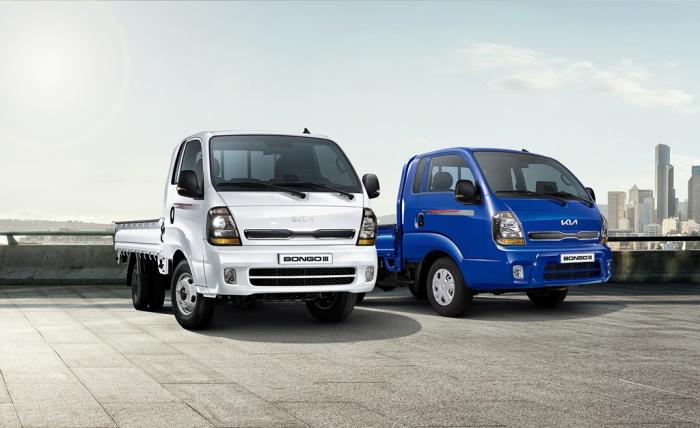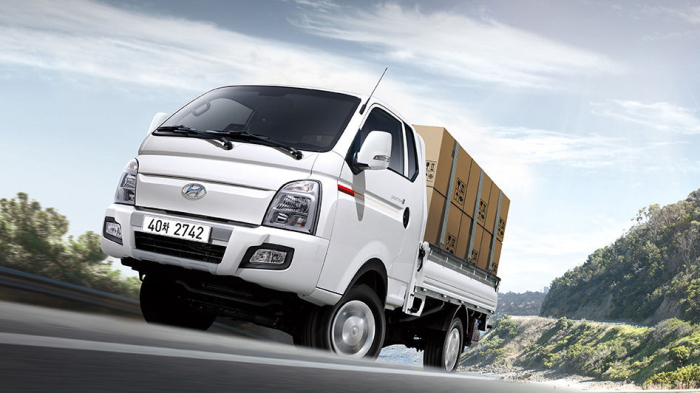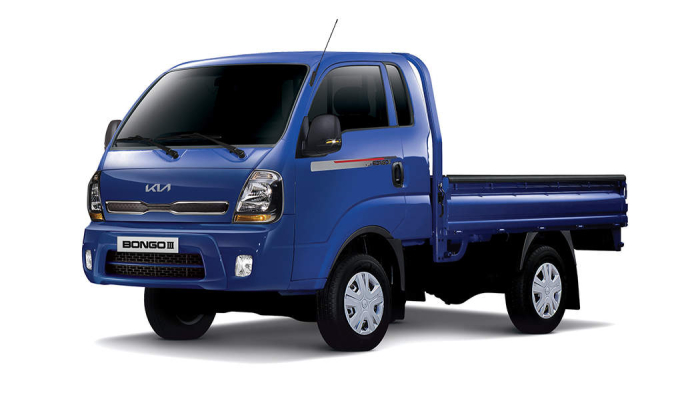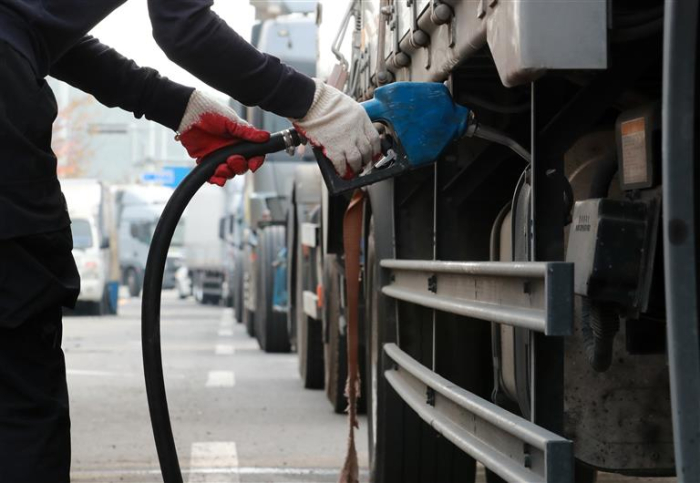Automobiles
Hyundai, Kia enjoy renewed popularity of LPG trucks Porter, Bongo
With sluggish electric car sales, small business owners are turning to LPG-powered pickups to benefit from state subsidies
By Feb 26, 2024 (Gmt+09:00)
3
Min read
Most Read
S.Korea's LS Materials set to boost earnings ahead of IPO process


NPS to commit $1.1 billion to external managers in 2024


Samsung shifts to emergency mode with 6-day work week for executives


Samsung Heavy Industries succeeds autonomous vessel navigation


Korean battery maker SK On expects business turnaround in H2



Many economists are trumpeting weak business conditions for the coming months. But an economic slowdown isnŌĆÖt all that bad for Hyundai Motor Co. and Kia Corp., which are enjoying a renewed boom in the small truck market.
According to industry sources on Monday, Hyundai Transys Co., a Hyundai Motor Group affiliate that produces automotive parts such as transmissions and axles, in mid-February began extra work beyond the usual restrictions.
In Korea, employees at major businesses are banned from working more than 52 hours a week. However, with employee consent and approval from the labor ministry, companies can ask them to work an additional 12 hours a week for up to three months should an exceptional case arise such as a sudden surge in product demand or short-term R&D requests.
A Hyundai Transys official said some employees at divisions that produce automatic transmissions for liquefied petroleum gas-powered one-ton trucks manufactured by Hyundai Motor and Kia, the two car-making units of South KoreaŌĆÖs top automaker, Hyundai Motor Group, are working overtime.

The employees are currently working for up to 64 hours a week ŌĆō the first such overtime since 2021 when the global auto industry suffered from a severe parts supply shortage caused by the outbreak of the COVID-19 pandemic.
SLUGGISH EV SALES
"With sluggish sales of electric cars, demand for combustion engine vehicles is rising again. So, we are also busy producing transmissions. Demand is expected to rise at a faster pace in the latter half of this year given the economic slowdown,ŌĆØ said a Hyundai Transys official.
As of Feb. 1, buyers of the new LPG-powered Hyundai Porter must wait for four months to receive the vehicles they ordered. Up to three months for deliveries of the new LPG Kia Bongo, according to Hyundai Motor Group.
ŌĆ£Last month, half of new car purchase requests were for the Porter. Some customers, knowing they canŌĆÖt buy a new car right away, are turning to the used car market to buy small trucks,ŌĆØ said a Hyundai Motor dealer in Seoul.

According to Seoul-based automotive data provider CarIsYou, the Hyundai Porter and the Kia Bongo sold 11,070 units and 6,393 units, respectively, in the secondhand car market in Korea last month.
With those figures, the Porter and the Bongo ranked first and second, respectively, followed by the Kia Morning compact sedan, which sold 3,950 units.
END OF DIESEL CAR ERA
Last November, Hyundai and Kia ceased manufacturing diesel-powered compact trucks and replaced them with LPG cars in line with the industryŌĆÖs shift toward eco-friendly vehicles.
The carmakers instead have begun building the same models with a next-generation 2.5-liter LPG-powered T-LPDi turbo engine or making them all-electric.

The two pickups have been widely used by delivery service operators in Korea for two decades. The production of the 1-ton Kia Bongo automatic transmission diesel model ŌĆō one of the most popular such vehicles ŌĆō already ceased on July 14.
Diesel vehicles pull out of the car market with strengthened environmental regulations.
Under the governmentŌĆÖs strengthened environmental regulations, delivery service providers were banned from registering new diesel vehicles starting in January.
The government grants up to 9 million won ($6,757) in subsidies for those who transition to LPG vehicles from diesel cars.
The termination of the production of the diesel compact trucks is also in line with the tougher Euro 7 emission rules, Hyundai Motor Group said.
Write to Nan-Sae Bin at binthere@hankyung.com
In-Soo Nam edited this article.
More to Read
-
 AutomobilesKoreaŌĆÖs small diesel truck ban powers LPG-fueled models
AutomobilesKoreaŌĆÖs small diesel truck ban powers LPG-fueled modelsDec 07, 2023 (Gmt+09:00)
1 Min read -
 Electric vehiclesUsed electric vehicle prices drop in Korea with declining EV appeal
Electric vehiclesUsed electric vehicle prices drop in Korea with declining EV appealNov 07, 2023 (Gmt+09:00)
2 Min read -
 AutomobilesEnd of an era: Hyundai, Kia say goodbye to diesel-powered Porters, Bongos
AutomobilesEnd of an era: Hyundai, Kia say goodbye to diesel-powered Porters, BongosJul 24, 2023 (Gmt+09:00)
2 Min read -
 AutomobilesElectric vehicles in S.Korea beat diesel cars in sales
AutomobilesElectric vehicles in S.Korea beat diesel cars in salesFeb 10, 2023 (Gmt+09:00)
1 Min read -
 Carbon neutralityKorean govt urged to hike diesel tax, ban fossil fuel cars by 2035
Carbon neutralityKorean govt urged to hike diesel tax, ban fossil fuel cars by 2035Nov 24, 2020 (Gmt+09:00)
3 Min read
Comment 0
LOG IN


